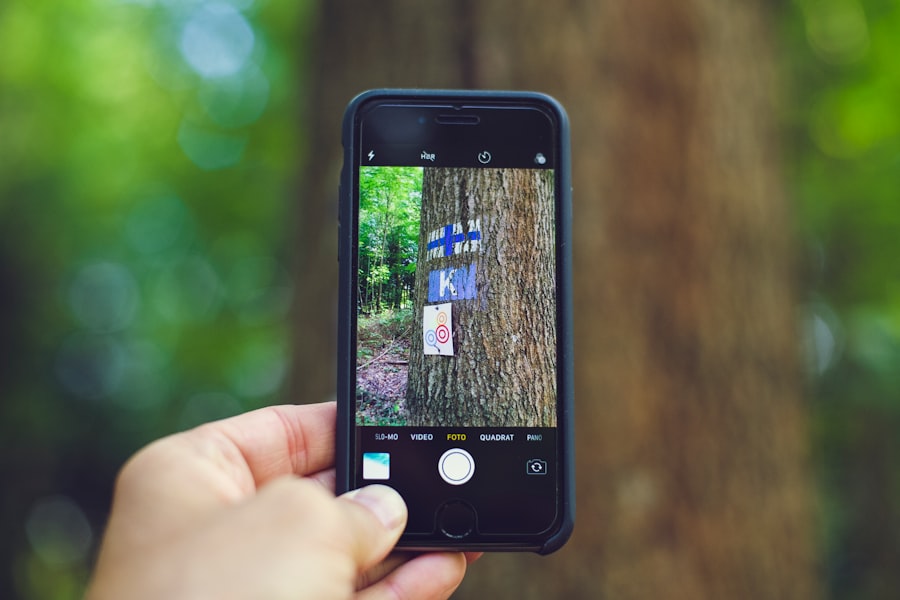You may have noticed that your phone has become an inseparable part of your daily life. Perhaps you find yourself reaching for it during meals, while watching TV, or even in the middle of conversations. These behaviors can be subtle at first, but they often escalate into a pattern that disrupts your daily activities and relationships.
If you frequently check your phone for notifications, even when you know there are none, or feel anxious when you can’t find it, these could be signs that your phone usage has crossed into the realm of addiction. Another indicator of phone addiction is the amount of time you spend on your device. If you often lose track of time while scrolling through social media or playing games, it might be time to take a step back and evaluate your habits.
You may also notice that your productivity has declined, as tasks take longer to complete due to constant distractions from your phone. Recognizing these signs is the first step toward regaining control over your life and finding a healthier balance with technology.
Key Takeaways
- Recognizing the Problem: Signs of Phone Addiction
- Setting Boundaries: Establishing Phone-Free Zones and Times
- Finding Alternative Activities: Hobbies and Interests to Replace Phone Usage
- Utilizing Screen Time Tracking Apps: Monitoring and Limiting Usage
- Practicing Mindfulness: Being Present in the Moment
Setting Boundaries: Establishing Phone-Free Zones and Times
Once you’ve acknowledged the problem, it’s essential to set boundaries to help manage your phone usage. One effective strategy is to establish phone-free zones in your home.
By creating these designated spaces, you can foster more meaningful interactions with family and friends during meals or enjoy a more restful sleep without the distraction of notifications. In addition to physical boundaries, consider setting specific times during the day when you will refrain from using your phone. This could be during work hours, while engaging in hobbies, or even during family time in the evenings.
By committing to these phone-free periods, you can cultivate a greater sense of presence and connection with the people and activities around you. Over time, these boundaries will help you develop healthier habits and reduce your reliance on your device.
Finding Alternative Activities: Hobbies and Interests to Replace Phone Usage

To effectively reduce your phone usage, it’s crucial to find alternative activities that can capture your interest and attention. Think about hobbies you’ve always wanted to explore or activities that once brought you joy but have been overshadowed by screen time. Whether it’s painting, gardening, reading, or learning a musical instrument, immersing yourself in these pursuits can provide a fulfilling distraction from your phone.
Additionally, consider joining local clubs or groups that align with your interests. Engaging with others who share similar passions can not only help you stay committed to your new hobbies but also foster social connections that may have been neglected due to excessive phone use. By filling your time with enriching activities, you’ll find it easier to step away from your device and embrace a more balanced lifestyle.
Utilizing Screen Time Tracking Apps: Monitoring and Limiting Usage
| Screen Time Tracking App | Features | Usage Monitoring | Usage Limiting |
|---|---|---|---|
| App A | Time tracking, app usage breakdown | Yes | Yes |
| App B | Real-time usage monitoring, custom alerts | Yes | Yes |
| App C | Weekly reports, app blocking | Yes | Yes |
In today’s digital age, many smartphones come equipped with built-in screen time tracking features that can help you monitor your usage patterns. By reviewing this data, you can gain valuable insights into how much time you’re spending on various apps and identify areas where you may need to cut back. This awareness can serve as a powerful motivator to make changes in your habits.
You might also consider downloading third-party apps designed specifically for tracking and limiting screen time. These applications often allow you to set daily limits for specific apps or categories of usage, providing gentle reminders when you’re approaching those limits. By actively monitoring your screen time, you’ll be better equipped to make informed decisions about your phone usage and take steps toward reducing it.
Practicing Mindfulness: Being Present in the Moment
Incorporating mindfulness into your daily routine can significantly enhance your ability to be present and engaged in the moment. Mindfulness practices encourage you to focus on your thoughts, feelings, and surroundings without judgment. By cultivating this awareness, you can develop a greater appreciation for the world around you and reduce the urge to reach for your phone as a source of distraction.
Consider incorporating mindfulness exercises into your day, such as meditation or deep-breathing techniques. Even simple practices like taking a few moments to observe your surroundings while walking can help ground you in the present moment. As you become more attuned to your environment and experiences, you’ll find it easier to resist the temptation of checking your phone constantly.
Seeking Support: Talking to Friends and Family about Reducing Phone Usage

Reducing phone usage can be challenging, but seeking support from friends and family can make the process more manageable. Openly discussing your goals with those close to you can create a sense of accountability and encouragement. They may even share their own experiences with phone addiction, fostering a supportive environment where everyone is working toward similar objectives.
Consider organizing group activities that promote phone-free interactions, such as game nights or outdoor excursions. By engaging in these shared experiences, you’ll strengthen your relationships while simultaneously reducing screen time. Remember that you’re not alone in this journey; many people are grappling with similar challenges, and having a support system can make all the difference.
Creating a Supportive Environment: Encouraging Others to Limit Phone Use
As you work on reducing your own phone usage, consider how you can create a supportive environment for those around you. Encourage friends and family members to join you in establishing phone-free zones or times within shared spaces. By collectively committing to these boundaries, you’ll foster a culture of mindfulness and presence that benefits everyone involved.
You might also share resources or articles about the effects of phone addiction and the benefits of reducing screen time. By raising awareness within your social circle, you can inspire others to reflect on their own habits and consider making positive changes. Together, you can create an environment that prioritizes meaningful connections over digital distractions.
Engaging in Physical Activity: Exercise and Outdoor Activities to Distract from Phone Use
Physical activity is an excellent way to divert your attention from your phone while also benefiting your overall health. Engaging in regular exercise not only helps reduce stress but also boosts mood and energy levels. Whether it’s going for a run, joining a fitness class, or simply taking a walk in nature, incorporating movement into your daily routine can provide a refreshing break from screen time.
Consider exploring outdoor activities that allow you to connect with nature while staying active. Hiking, biking, or even playing sports with friends can be enjoyable alternatives to scrolling through social media. By immersing yourself in physical pursuits, you’ll not only distract yourself from your phone but also cultivate a healthier lifestyle that promotes well-being.
Unplugging: Taking Breaks from Technology and Social Media
Taking intentional breaks from technology and social media can be incredibly beneficial for your mental health and overall well-being. Consider designating specific days or weekends as “unplugged” periods where you refrain from using your phone altogether. During these breaks, focus on reconnecting with yourself and engaging in activities that bring you joy without the influence of screens.
You might also experiment with digital detoxes by temporarily deleting social media apps or limiting access to certain websites. This intentional disconnection allows you to reset your relationship with technology and gain perspective on how it impacts your life. Embracing these breaks can lead to increased clarity and a renewed appreciation for the world beyond the screen.
Setting Realistic Goals: Gradually Reducing Phone Usage
When it comes to reducing phone usage, setting realistic goals is essential for long-term success. Instead of attempting an abrupt withdrawal from your device, consider gradually decreasing the amount of time you spend on it each day. Start by identifying specific apps or activities that consume most of your time and set achievable limits for each.
For example, if you currently spend three hours daily on social media, aim to reduce that time by 30 minutes each week until you reach a more manageable level. Celebrate small victories along the way to keep yourself motivated and accountable. By taking gradual steps toward reducing phone usage, you’ll create sustainable habits that are easier to maintain over time.
Seeking Professional Help: Therapy and Counseling for Severe Phone Addiction
In some cases, phone addiction may be severe enough to warrant professional help. If you’ve tried various strategies without success or find that your phone usage is significantly impacting your mental health or relationships, seeking therapy or counseling could be beneficial. A mental health professional can help you explore underlying issues contributing to your addiction and provide tailored strategies for managing it effectively.
Therapy can also offer a safe space for discussing feelings of anxiety or isolation that may arise from excessive phone use. By addressing these emotions head-on, you’ll be better equipped to develop healthier coping mechanisms and build resilience against the urge to rely on your device for comfort or distraction. Remember that seeking help is a sign of strength; taking this step can lead to profound personal growth and improved well-being.
In conclusion, recognizing the signs of phone addiction is the first step toward reclaiming control over your life. By setting boundaries, finding alternative activities, utilizing tracking apps, practicing mindfulness, seeking support from loved ones, creating a supportive environment, engaging in physical activity, unplugging regularly, setting realistic goals, and considering professional help when necessary, you can embark on a journey toward healthier technology habits. Embrace this opportunity for growth and connection as you work toward a more balanced relationship with your devices.
In today’s digital age, phone addiction has become a prevalent issue affecting individuals of all ages. To address this growing concern, it’s essential to explore effective strategies for reducing screen time and fostering healthier habits. One insightful resource on this topic is an article from Unplugged Psych, which delves into practical methods for curbing phone addiction. The article provides valuable tips and techniques to help individuals regain control over their screen time and improve their overall well-being. For more information, you can read the full article by visiting Unplugged Psych.
WATCH THIS! Your Brain Is Not Bored; AI Is Stealing Your Dopamine (76-Minute Documentary)
FAQs
What is phone addiction?
Phone addiction, also known as nomophobia, is the excessive and compulsive use of smartphones, leading to negative effects on one’s physical and mental well-being.
What are the signs of phone addiction?
Signs of phone addiction include constantly checking the phone, feeling anxious when the phone is not accessible, neglecting responsibilities due to phone use, and using the phone as a way to escape from real-life problems.
How does phone addiction affect mental health?
Phone addiction can lead to anxiety, depression, and decreased self-esteem. It can also disrupt sleep patterns and lead to a decrease in overall well-being.
What are some strategies to curb phone addiction?
Strategies to curb phone addiction include setting limits on phone usage, turning off notifications, engaging in offline activities, seeking support from friends and family, and using apps to track and limit phone usage.
Why is it important to curb phone addiction?
Curb phone addiction is important because excessive phone use can have negative impacts on mental and physical health, as well as on personal relationships and productivity.




